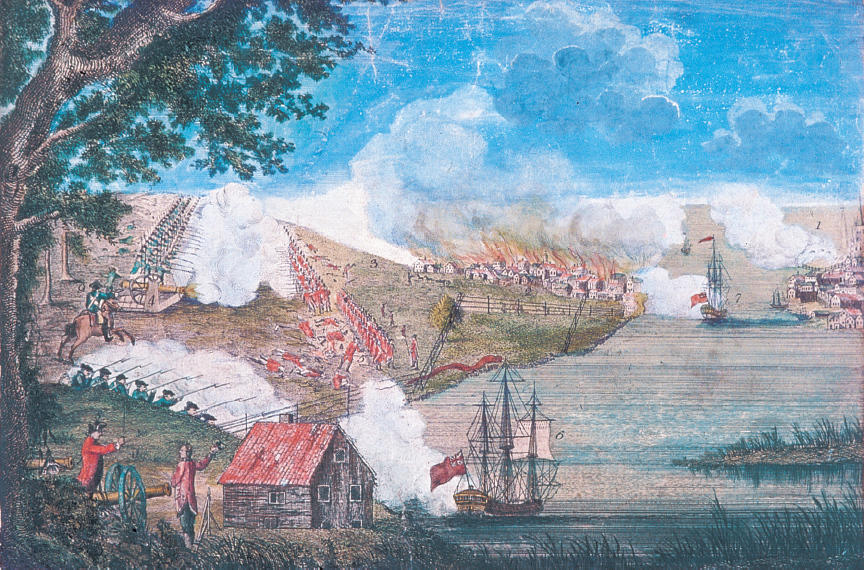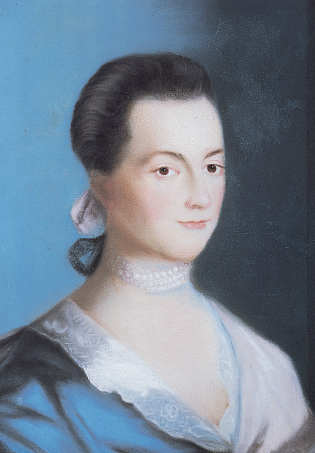Thomas Paine, Abigail Adams, and the Case for Independence
Printed Page 176
Pressure for independence started to mount in January 1776, when a pamphlet titled Common Sense appeared in Philadelphia. Thomas Paine, its author, was an English artisan and coffeehouse intellectual who had come to America in the fall of 1774. With the encouragement of members of the Second Continental Congress, he wrote Common Sense to justify independence.
 A pamphlet written by Thomas Paine in 1776 that laid out the case for independence. In it, Paine rejected monarchy, advocating its replacement with republican government based on the consent of the people. The pamphlet influenced public opinion throughout the colonies.
A pamphlet written by Thomas Paine in 1776 that laid out the case for independence. In it, Paine rejected monarchy, advocating its replacement with republican government based on the consent of the people. The pamphlet influenced public opinion throughout the colonies.
CHAPTER LOCATOR
Why did Americans wait so long before they declared their independence?
What initial challenges did the opposing armies face?
What role did the home front play in the war?
How were Native Americans and the French involved in the war?
Why did the British southern strategy ultimately fail?
Conclusion: Why did the British lose the American Revolution?
 LearningCurve
LearningCurve
Check what you know.

In simple yet forceful language, Paine elaborated on the absurdities of the British monarchy. Why should one man, by accident of birth, claim extensive power over others? he asked. A king might be foolish or wicked. “One of the strongest natural proofs of the folly of hereditary right in kings,” Paine wrote, “is that nature disapproves it; otherwise she would not so frequently turn it into ridicule by giving mankind an ass for a lion.” To replace monarchy, Paine advocated republican government based on the consent of the people. Rulers, according to Paine, were only representatives of the people, and the best form of government relied on frequent elections to achieve the most direct democracy possible.
Paine’s pamphlet sold more than 150,000 copies in a matter of weeks. Newspapers reprinted it; men read it aloud in taverns and coffeehouses; John Adams sent a copy to his wife, Abigail, who passed it around to neighbors in Braintree, Massachusetts. New Englanders desired independence, but other colonies, under no immediate threat of violence, remained cautious.

Abigail Adams was impatient not only for independence but also for other legal changes that would revolutionize the new country. In a series of astute letters to her husband, she outlined obstacles and gave advice. She worried that southern slave owners might shrink from a war in the name of liberty: “I have sometimes been ready to think that the passion for Liberty cannot be Equally strong in the Breasts of those who have been accustomed to deprive their fellow Creatures of theirs.” And in March 1776, she expressed her hope that women’s legal status would improve under the new government: “In the new Code of Laws which I suppose it will be necessary for you to make I desire you would Remember the Ladies, and be more generous and favourable to them than your ancestors.” John Adams dismissed his wife’s concerns. But to a male politician, John privately rehearsed the reasons why women (and men who were free blacks, or young, or propertyless) should remain excluded from political participation. Even though he concluded that nothing should change, at least Abigail’s letter had forced him to ponder the exclusion, something few men — or women — did in 1776. Urgent talk of political independence was as radical as most could imagine.